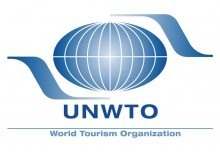 India has recorded a 16 per cent increase in international tourism expenditure during the first three to nine months of 2016. Destinations around the world welcomed 956 million international tourists between January and September 2016, according to the latest UNWTO World Tourism Barometer. This is 34 million more than in the same period of 2015, a 4 per cent increase. Among the top five source markets, China, the world’s top source market, continues to drive demand, reporting double-digit growth in spending (+19%). Likewise, robust results come from the United States (+9%), which benefited many destinations in the Americas and beyond. Germany reported a 5% increase in expenditure, the United Kingdom, a 10% increase, and France, 3% growth.
India has recorded a 16 per cent increase in international tourism expenditure during the first three to nine months of 2016. Destinations around the world welcomed 956 million international tourists between January and September 2016, according to the latest UNWTO World Tourism Barometer. This is 34 million more than in the same period of 2015, a 4 per cent increase. Among the top five source markets, China, the world’s top source market, continues to drive demand, reporting double-digit growth in spending (+19%). Likewise, robust results come from the United States (+9%), which benefited many destinations in the Americas and beyond. Germany reported a 5% increase in expenditure, the United Kingdom, a 10% increase, and France, 3% growth.
Demand for international tourism remained robust in the first nine months of 2016, though growing at a somewhat more moderate pace. After a strong start of the year, growth was slower in the second quarter of 2016 to pick up again in the third quarter of the year. While most destinations report encouraging results, others continue to struggle with the impact of negative events, either in their country or in their region.
Tourism spending grew notably in Australia and the Republic of Korea (both +9%), and moderately in Italy (+3%). By contrast, expenditure from the Russian Federation declined 37% and from Canada a slight 2%. Beyond the top 10, eight other markets reported double-digit growth: Egypt (+38%), Argentina (+27%), Spain (+19%), India (+16%), Thailand (+15%), Ukraine (+15%), Ireland (+12%) and Norway (+11%).
“Tourism is one of the most resilient and fastest-growing economic sectors but it is also very sensitive to risks, both actual and perceived. As such, the sector must continue to work together with governments and stakeholders to minimize risks, respond effectively and build confidence among travelers,” said UNWTO Secretary-General, Taleb Rifai.
“No destination is immune to risks. We need to increase cooperation in addressing these global threats, namely those related to safety and security. And we need to make tourism an integral part of emergency planning and response”, added Rifai. He also recalled, “Real crises are often magnified or distorted by misperception and affected destinations are facing important challenges, although at the global level demand remains strong. We need to support these countries in restoring confidence, as doing so will benefit the entire tourism sector and society as a whole.”
Breaking News
- Japan National Tourism Organization Delhi office designates AllKnown Marketers as their India market representative
- Suman Billa returns to MOT as Additional Secretary
- Sarovar Hotels launches “Call of Majestic Mountains” campaign
- The Fern Hotels & Resorts launches SKK The Fern-An Ecotel Hotel in Jaisalmer
- Domestic air passenger traffic estimated at 154 million for FY2024: ICRA report
- Sri Lanka introduces new online visa system with effect from 17 April, 2024
- Singapore Tourism chooses golf to connect with C-suite corporate clients that are vital to stay competitive
- Demand for immersive experiences at an all-time high in India’s growing sports fandom: Monish Shah, Founder & CEO, DreamSetGo
- FHRAI Seeks Relief for Hospitality Sector from DGFT’s Secondary Conditions
- Environment-friendly travel to Kashmir guarantees prosperity of the Union Territory, says Jyoti Mayal
- Malaysia aims 35.6 mn foreign tourist arrivals & RM147.1 bn spending during Visit Malaysia Year 2026: Manoharan Periasamy
 Tourism Breaking News
Tourism Breaking News


